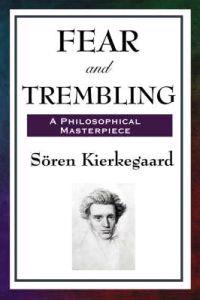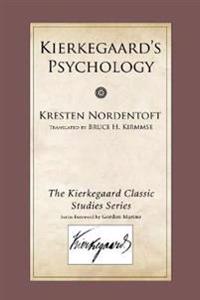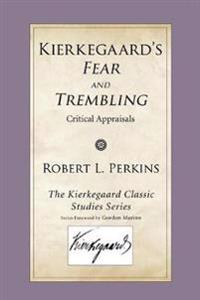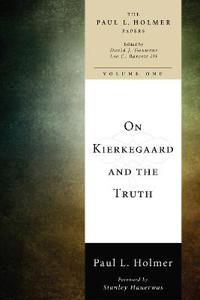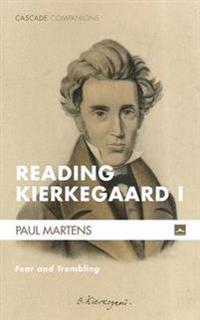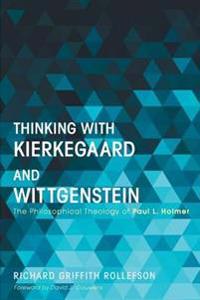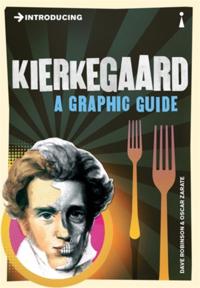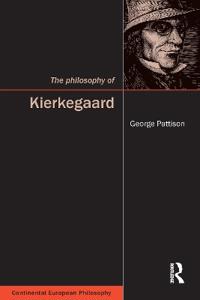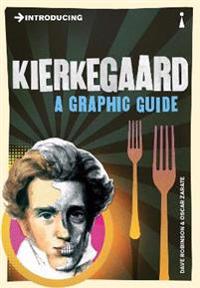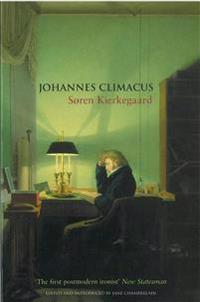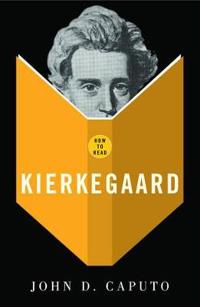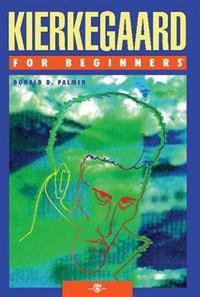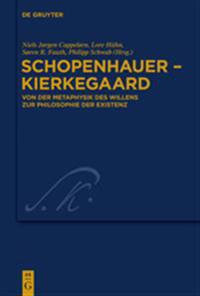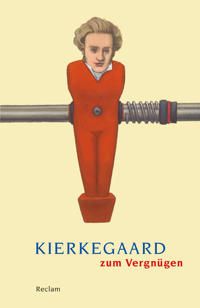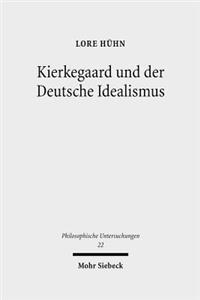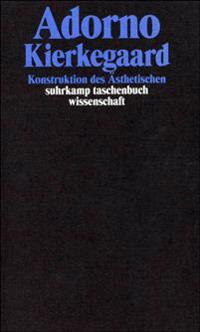Kierkegaard's Fear and Trembling: Critical Appraisals (Häftad)
avRobert L. Perkins, Gordon Marino
ISBN: 9781606088869 - UTGIVEN: 200510Thinking with Kierkegaard and Wittgenstein (Häftad)
avRichard Griffith Rollefson
ISBN: 9781625642004 - UTGIVEN: 2014-11Kierkegaard and the Crisis of Faith: An Introduction to His Thought (Häftad)
avGeorge Pattison
ISBN: 9781625645029 - UTGIVEN: 2013-11Wisdom of Kierkegaard Vol. I
ISBN: 9781633842724 - UTGIVEN: 2015-06Collected here in one volume are three of Soren Kierkegaard's most important works: Fear and Trembling, Purity of Heart Is to Will One Thing, and Sickness Unto Death. Fear and Trembling: In our time nobody is content to stop with faith but wants to go further. It would perhaps be rash to ask where t[...]
Søren Kierkegaard
ISBN: 9781780239231 - UTGIVEN: 2018-03The Danish philosopher, theologian and author Soren Kierkegaard (1813-1855) is widely considered to be one of the most important religious thinkers of the modern age. He is known as the `father of existentialism', but his work was also influential on theories of modernism, theology, Western culture,[...]
Introducing Kierkegaard
ISBN: 9781785780158 - UTGIVEN: 2015-09Father of existentialism or the Eeyore of philosophy?Known as the first modern theologian, SrenKierkegaard was a prolific writer of the Danish 'golden age'. A philosopher,poet and social critic, his key concepts of angst, despair, and theimportance of the individual, influenced many 20th-century phi[...]
The Philosophy of Kierkegaard (Häftad)
avGeorge Pattison
ISBN: 9781844650316 - UTGIVEN: 2005-07Although the ideas of Soren Kierkegaard played a pivotal role in the shaping of mainstream German philosophy and the history of French existentialism, the question of how philosophers should read Kierkegaard is a difficult one to settle. His intransigent religiosity has led some philosophers to view[...]
Starting With Kierkegaard (Pocket)
avPatrick Sheil
ISBN: 9781847065810 - UTGIVEN: 2011-04-21A new introduction to Kierkegaard, guiding the student through the key concepts of his work by examining the overall development of his ideas.[...]
Introducing Kierkegaard (Pocket)
avDave Robinson
ISBN: 9781848315150 - UTGIVEN: 201305Father of existentialism or the Eeyore of philosophy? Known as the first modern theologian, Soren Kierkegaard was a prolific writer of the Danish 'golden age'. A philosopher, poet and social critic, his key concepts of angst, despair, and the importance of the individual, influenced many 20th-centur[...]
Johannes Climacus or (Pocket)
avSoren Kierkegaard
ISBN: 9781852426699 - UTGIVEN: 2001-08When Kierkegaard died at the age of forty-two, the papers found in his desk included "Johannes Climacus", probably written in the winter of 1842-43. The book is a novel, as well as a work of philosophy, which tells the tale of what happens to the young Johannes Climacus as he decides to become a phi[...]
How to Read Kierkegaard (Häftad)
avJohn D. Caputo
ISBN: 9781862079151 - UTGIVEN: 200702Soren Kierkegaard is one of the prophets of the contemporary age, a man whose acute observations on life in 19th century. This work offers an account of Kierkegaard as a thinker of particular relevance in our postmodern times, who set off a revolution that numbers Martin Heidegger and Karl Barth amo[...]
Kierkegaard for Beginners (Pocket)
avDonald D. Palmer, Donald D. Palmer, Donald D. Palmer
ISBN: 9781934389140 - UTGIVEN: 200708Schopenhauer - Kierkegaard
ISBN: 9783110254112 - UTGIVEN: 2011-11Since the Kierkegaard Studies Monograph Series (KSMS) was first published in 1997, it has served as the authoritative book series in the field. Starting from 2011 the Kierkegaard Studies Monograph Series will intensify the peer-review process with a new editorial and advisory board. KSMS is publishe[...]
Kierkegaard Und Der Deutsche Idealismus: Konstellationen Des Ubergangs
ISBN: 9783161495823 - UTGIVEN: 2009-12English summary: Kierkegaard's existential philosophy began with a critique of Hegel. This critique describes Kierkegaard's own transition into modernity. To begin with, it converges with the path taken by Schelling in his later works, and at the same time it reinforces the late Fichte's approach to[...]
Kierkegaard After the Genome
ISBN: 9783319579801 - UTGIVEN: 2017-08This book brings Soren Kierkegaard's nineteenth-century existentialist project into our contemporary age, applying his understanding of "freedom" and "despair" to science and science studies, queer, decolonial and critical race theory, and disability studies. The book draws out the materialist dimen[...]
Einübung im Christentum / Zwei kurze ethisch-religiöse Abhandlungen / Das Buch Adler oder Der Begriff der Auserwählten (Pocket)
avSören Kierkegaard
ISBN: 9783423133852 - UTGIVEN: 2005-10?Als Kierkegaard seine Laufbahn begann, schien er der freien Wissenschaft der gefährlichste aller Gegner werden zu sollen. Ein Denker von diesem Range - und zugleich ein Prediger! Ein Philosoph so groß angelegt wie keiner zuvor in Dänemark! In ihm ward die Probe auf das Exempel gemacht.? Georg Br[...]

